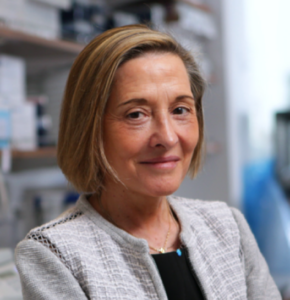SAN DIEGO—The Autoimmunity Centers of Excellence (ACE) are a cooperative group funded by the National Institute of Allergy and Infectious Diseases (NIAID) that conduct basic and clinical research on autoimmune diseases.1 ACEs focus on treatment and prevention strategies that induce immune tolerance or modulate the immune system. The goal is to facilitate collaboration across clinicians and basic researchers in a variety of medical specialties and disciplines to accelerate discovery and development.
This year at ACR Convergence 2023, three rheumatologists from ACE shared their findings regarding heterogeneity in systemic lupus erythematosus (SLE).
B Cell Complexity in Human SLE

Ignacio “Iñaki” Sanz, MD
Ignacio “Iñaki” Sanz, MD, Mason I. Lowance Professor of Medicine and Pediatrics, chief, Division of Rheumatology, director, The Lowance Center for Human Immunology, Emory University School of Medicine, Atlanta, shared findings on B cell complexity in SLE.2–4 He was available for interview.
TR: Ultimately, what do you hope to accomplish with your research?
Dr. Sanz: Through our research we aim to better understand the mechanisms underlying the autoimmune response in SLE—in particular, the different mechanisms and pathways through which SLE patients generate pathogenic B cells, plasma cells and autoantibodies. Notably, we have recently demonstrated that these mechanisms also contribute to an autoimmune response in non-lupus patients with severe COVID-19 infection.
TR: Can you summarize your most exciting findings?
Dr. Sanz: We have defined new B cell populations that become highly active during SLE flares. The activation of these populations depends on the recruitment of new B cells and the generation of autoantibodies rather than the expansion of pre-formed memory cells that are present for many years in SLE patients. Interestingly, the participation of these cells is promoted by epigenetic imprinting of the corresponding B cells.
TR: What might be the clinical implications of your findings in the future as they pertain to patient care?
Dr. Sanz: The new B cell mechanisms that we have described are not present in all patients. Instead, they are more prominent in patients with SLE who are Black with severe disease. These findings reflect a large degree of disease heterogeneity and should allow for better tailoring of treatments and clinical trials to the patient populations more likely to respond.
A Systems Biology Approach for Pediatric & Adult AI Diseases

Virginia Pascual, MD
Virginia Pascual, MD, Ronay Menschel Professor of Pediatrics, Weill Cornell Medical College, New York, New York also shared work on a systems biology approach for pediatric and adult autoimmune disease.5–7 “Systems biology approaches use high throughput technologies and generate large amounts of data,” she explained. Her group’s goal is to understand the heterogeneity of SLE to stratify patients and find the right therapies for them as soon as possible.
